|
|
|
|
What do you think of when you hear the term ‘fair go’?
As a twenty-something, my first thought is always John Howard. I would have been in primary school when I first heard the long-serving Liberal prime minister talk about Australia as a golden land of opportunity where everyone gets a fair go. It sounded almost magical to my childish imagination.
Howard wasn’t the first to use the phrase, and he wasn’t the last. Two memorable iterations spring to mind since: Kevin Rudd’s condiment-themed spin-off, “fair shake of the sauce bottle” (I’m still not convinced I understand what that means), and more recently, Scott Morrison’s strings-attached version of “a fair go for those who have a go”.
As entrenched as the phrase now is in our political rhetoric, it wasn’t always used in such a way. Cosmo Howard and Pandanus Petter analysed newspaper articles from colonial times to find myriad, decidedly non-political uses of the term.
“We found the most common uses of the fair go expression did not refer to equality, benevolence and social justice. Instead, the phrase was mainly used to describe spirited efforts in competitive sports such as horse racing, boxing and sprinting,” they write.
They found instances of the fair go applying to everything from compelling sporting contests to fights between councillors.
So while it’s now entered the phrasebooks of politicians of all stripes, you don’t have to leave it to the elected officials. Try bringing it up at your next dinner party. Go on, give it a fair go.
|

|
Erin Cooper-Douglas
Deputy Politics + Society Editor
|
|
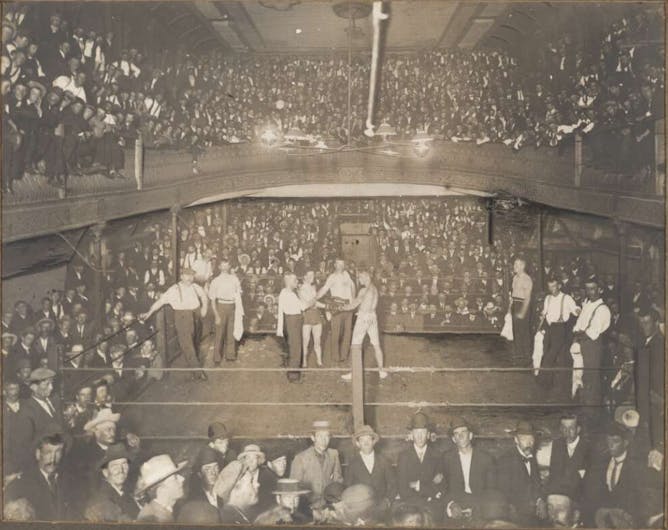
Cosmo Howard, Griffith University; Pandanus Petter, Griffith University
Politicians often wheel out the phrase, but what does it really mean? We examined newspaper articles from before Federation to track how it was used.
|
Best reads this week
|
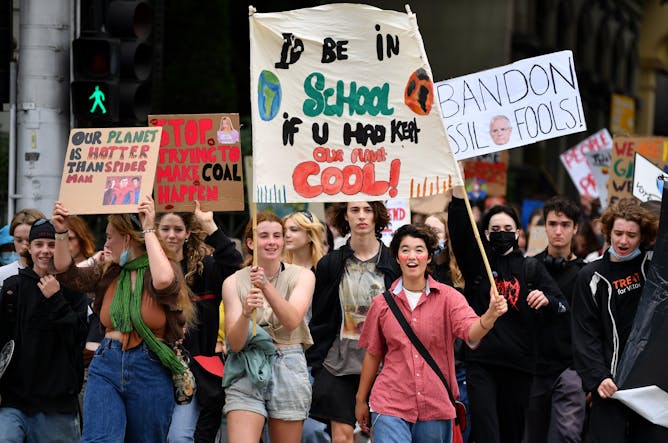
Intifar Chowdhury, Flinders University
Worldwide, young women are becoming more progressive than young men. It’s happening in Australia, too – with a twist. An analysis of the Australian Election Study yields surprising results.
|

Jane Goodall, Western Sydney University
If there is an overriding theme in The Worlds I See, it is that human and artificial intelligence form a double helix.
|
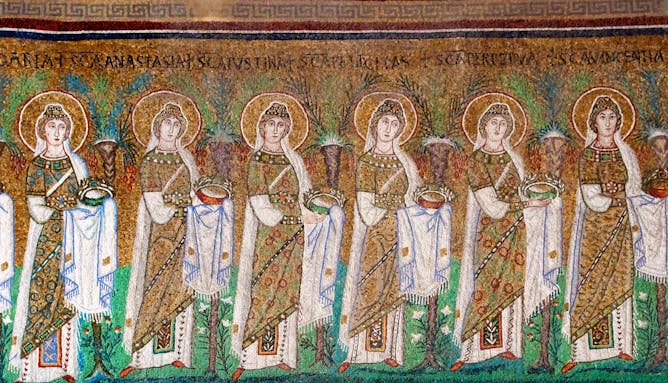
Caillan Davenport, Australian National University; Meaghan McEvoy, Australian National University
Perpetua was still breastfeeding her baby son when she was thrown in jail by Roman authorities. A Latin text movingly describes her suffering.
|

Penni Russon, Monash University
Heartstopper is a celebration of ‘queer joy’ that uses the imaginative intimacy of graphic novels to invite the reader into its tight-knit world.
|
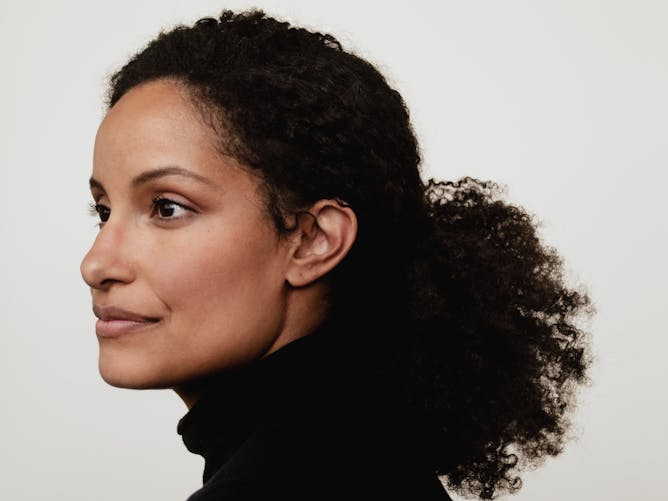
Jodi McAlister, Deakin University
Kiley Reid’s follow-up to her Booker longlisted debut is a novel about money. But it’s most interesting when it explores the gap between our imagined selves and what our actions reveal.
|
Podcasts
|
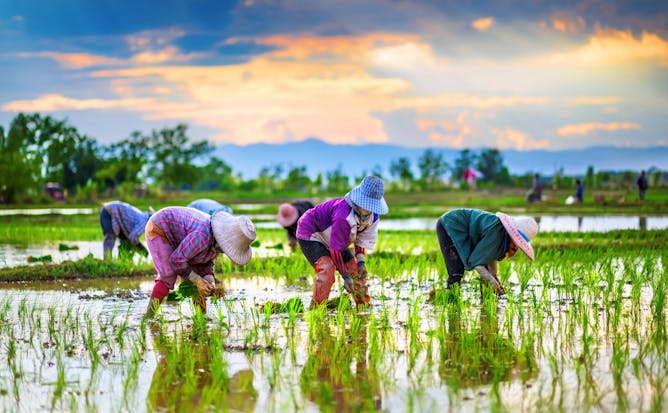
Chatrawee Wiratgasem via Shutterstock
Mend Mariwany, The Conversation
Michael Varnum explains new research on the role ecological factors play in the differences between cultures. Listen to The Conversation Weekly podcast.
|
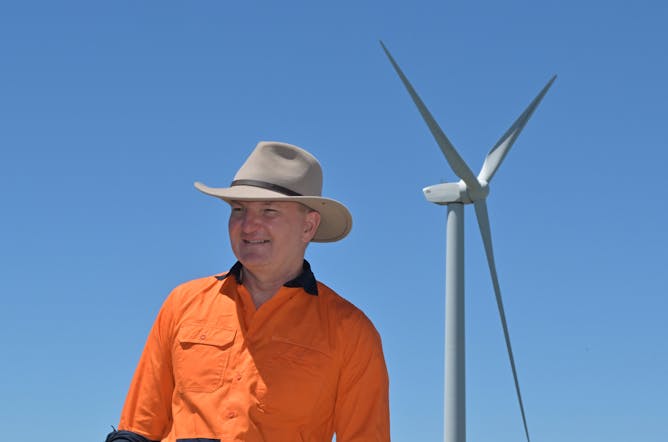
MICK TSIKAS/AAP
Michelle Grattan, University of Canberra
The new fuel efficiency standards regime will move Australia in the direction of comparable countries, but it has its critics. Minister for Climate Change and Energy Chris Bowen joins the podcast to discuss this policy and more
|
Our most-read article this week
|
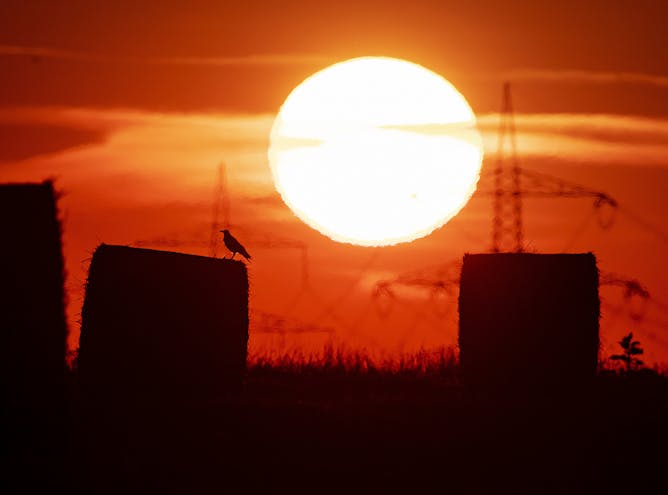
Malcolm McCulloch, The University of Western Australia
Keeping the average global temperature rise below 1.5°C since pre-industrial times is a goal of the 2015 Paris climate deal. New research suggests that opportunity has passed.
|
In case you missed this week's big stories
|
-
Peter Martin, Crawford School of Public Policy, Australian National University
The Conversation’s expert 00panel expects inflation to continue to fall, but more gradually, and it expects the RBA to be slow in responding. Unemployment should climb and economic growth weaken.
-
Brendan Coates, Grattan Institute; Joey Moloney, Grattan Institute
A large majority of Australian taxpayers will benefit from the revised tax package, despite the impact of bracket creep over the next decade. But long term, these tax cuts come at a high price.
-
Anne Twomey, University of Sydney
An incapacitated King could potentially cause difficulties in Australia, and it would be wise for governments to enact legislation now to protect against it.
-
Jessica Kean, University of Sydney; Helen Proctor, University of Sydney; Kellie Burns
The question of whether it’s a good idea to educate boys and girls separately has been debated in Australia for at least 160 years.
-
John Hart, Australian National University
Whatever its decision, the court risks once again being seen as politically partisan.
-
Andrew Thomas, Deakin University
The two sides got very close to a deal in the 1990s but have drifted apart since then.
-
Chris F. Wright, University of Sydney
Receiving calls from the boss after hours stresses workers and can put pressure on relationships. But this is set to change with an amendment to the Fair Work Act.
-
Luke Munn, The University of Queensland
Coles plans to ‘optimise its workforce’ with big data and AI tools from a controversial tech company.
-
Catherine Ordway, University of Canberra; Aaron CT Smith, University of Canberra
A plans for ‘Enhanced Games’ with no restrictions on performance-enhancing drugs would be bad for athletes and for sport itself.
-
Nick Fuller, University of Sydney
Weight loss can seem like an impossible, unachievable task. But you don’t need to lose a lot of weight to start noticing the health benefits.
|
|
| |
|
|
|
Edith Cowan University | Navitas Pty Ltd
Sri Lanka
•
Full Time
|

|
|
University of Tasmania
Hobart TAS, Australia
•
Full Time
|

|
|
|
|
| |
| |
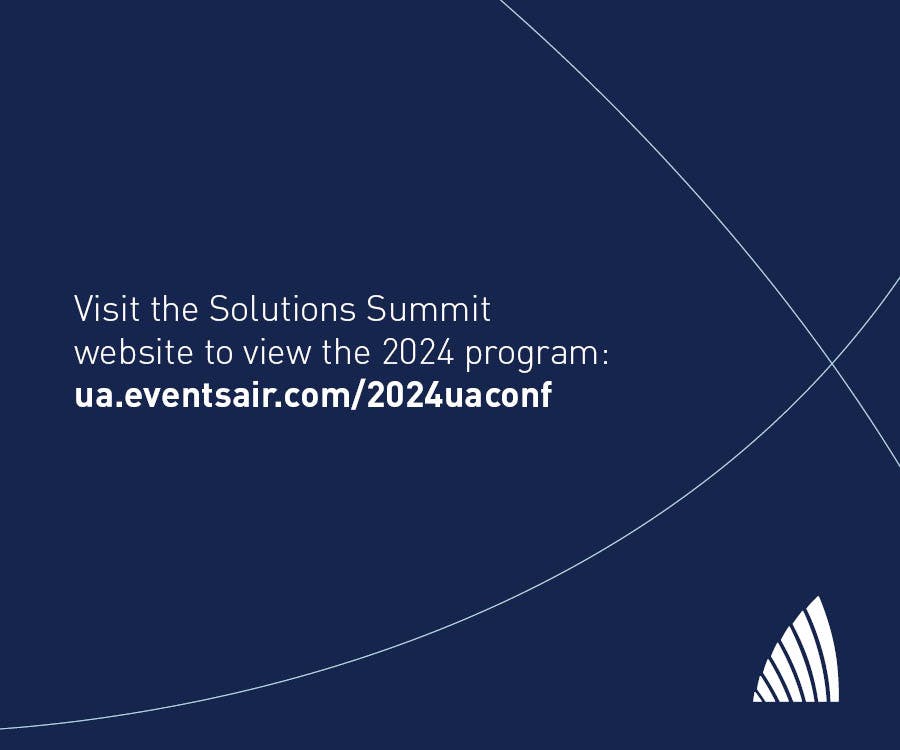
|
| |
| |
| |
Featured Events, Courses & Podcasts
|
View all
|
|
1 January 2023 - 7 October 2026
•
|

|
1 February 2023 - 25 November 2029
•
|
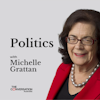
|
15 January - 14 February 2024
•
|

|
4 March - 13 May 2024
•
Clayton
|

|
|
|
|
| |
| |
| |
| |
| |
|
|
|
|
|
|
|